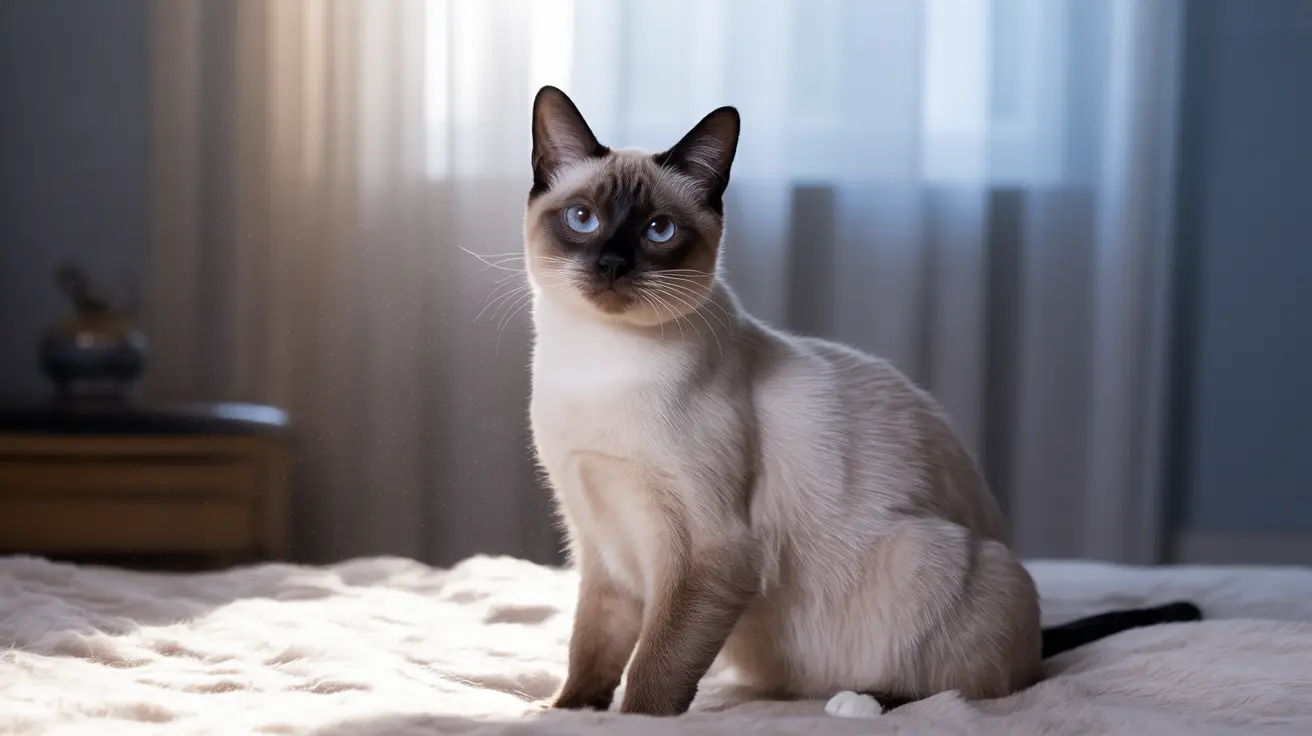If you've ever been startled awake by your cat's sudden, persistent meowing, you're not alone. Many cat owners experience this puzzling behavior, wondering about its underlying causes and potential solutions. Understanding why cats wake up meowing can help you address your furry friend's needs and ensure their well-being.
Cats vocalize for various reasons, ranging from medical concerns to behavioral triggers. This comprehensive guide will explore the most common reasons behind your cat's morning or nighttime meowing and provide expert insights into managing this behavior.
Medical Reasons Behind Cat Meowing
Age-Related Cognitive Changes
As cats age, they can develop cognitive dysfunction syndrome, similar to dementia in humans. This condition often leads to increased vocalization, especially during nighttime or early morning hours. Elderly cats may feel confused, disoriented, or anxious, causing them to meow loudly upon waking.
Potential Health Conditions
Several medical issues can trigger excessive meowing in cats:
- Hyperthyroidism
- High blood pressure
- Chronic pain
- Sensory loss
- Neurological disorders
If your cat's meowing is sudden, persistent, or accompanied by other symptoms like changes in appetite or mobility, consulting a veterinarian is crucial.
Behavioral Triggers for Cat Waking and Meowing
Attention-Seeking Behavior
Cats are masters at communication, and meowing can be their way of demanding attention, food, or interaction. Some cats learn that vocalizing gets an immediate response from their owners, reinforcing the behavior over time.
Environmental Factors
Changes in your household can significantly impact your cat's vocalization patterns:
- New furniture arrangements
- Introduction of new pets
- Changes in daily routine
- Moving to a new home
These disruptions can cause anxiety and lead to increased meowing as a response to stress or uncertainty.
Natural Feline Rhythms and Vocalization
Crepuscular Activity Patterns
Cats are naturally crepuscular, meaning they're most active during dawn and dusk. This biological rhythm can explain why your cat might be more vocal during early morning hours when the household is typically quiet.
Strategies to Manage Nighttime Meowing
Veterinary Consultation
Always start by ruling out medical issues. A thorough veterinary examination can help identify any underlying health concerns contributing to your cat's vocalization.
Behavioral Management Techniques
- Maintain a consistent daily routine
- Provide interactive play sessions during the day
- Create a comfortable sleeping environment
- Avoid reinforcing meowing with immediate attention
Frequently Asked Questions
Why does my cat wake me up meowing every morning?
Cats may meow due to hunger, attention-seeking, anxiety, or age-related cognitive changes. Identifying the specific trigger can help address the behavior effectively.
How can I determine if my cat's morning meowing is due to medical issues or behavioral factors?
Monitor the frequency, timing, and accompanying symptoms. Sudden changes or persistent vocalization warrant a veterinary checkup to rule out medical conditions.
What are the best ways to stop my cat from waking me up early in the morning?
Establish a consistent routine, provide mental and physical stimulation during the day, and avoid immediately responding to meowing to prevent reinforcing the behavior.
Can changes in a cat's environment, like moving or new pets, cause them to meow more at night?
Yes, environmental changes can cause stress and anxiety, leading to increased vocalization as cats adjust to new circumstances.
How can I differentiate between normal and abnormal vocalization in my cat, especially if they are elderly?
Pay attention to sudden changes in vocalization patterns, accompanying symptoms, and overall behavior. Consult a veterinarian if you're concerned about your cat's meowing.






